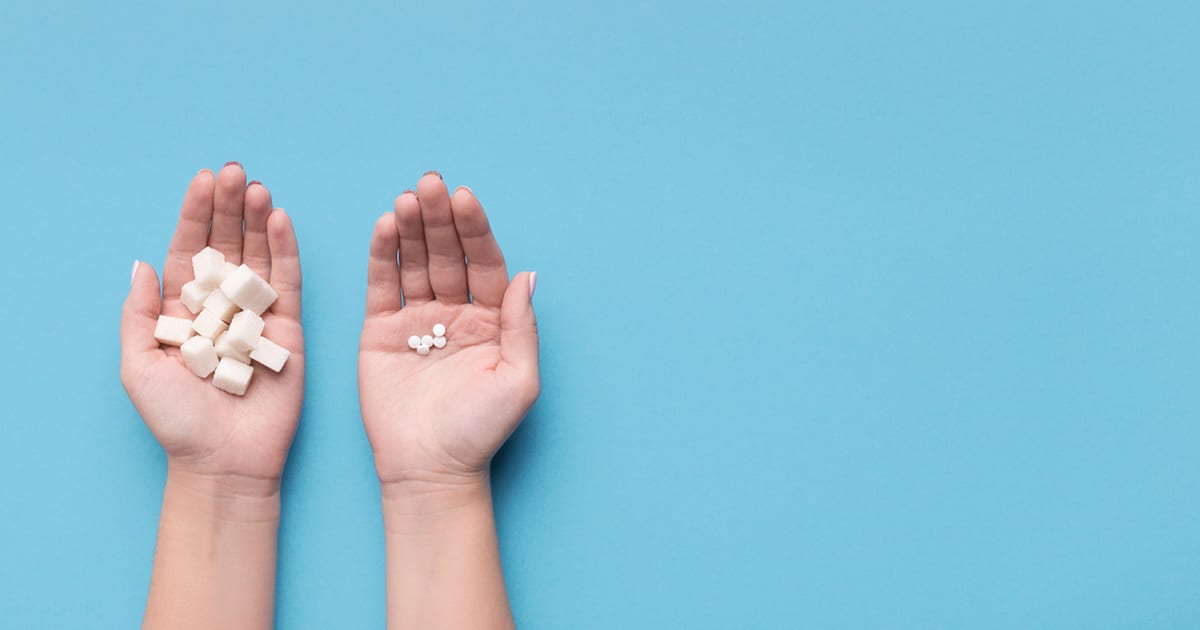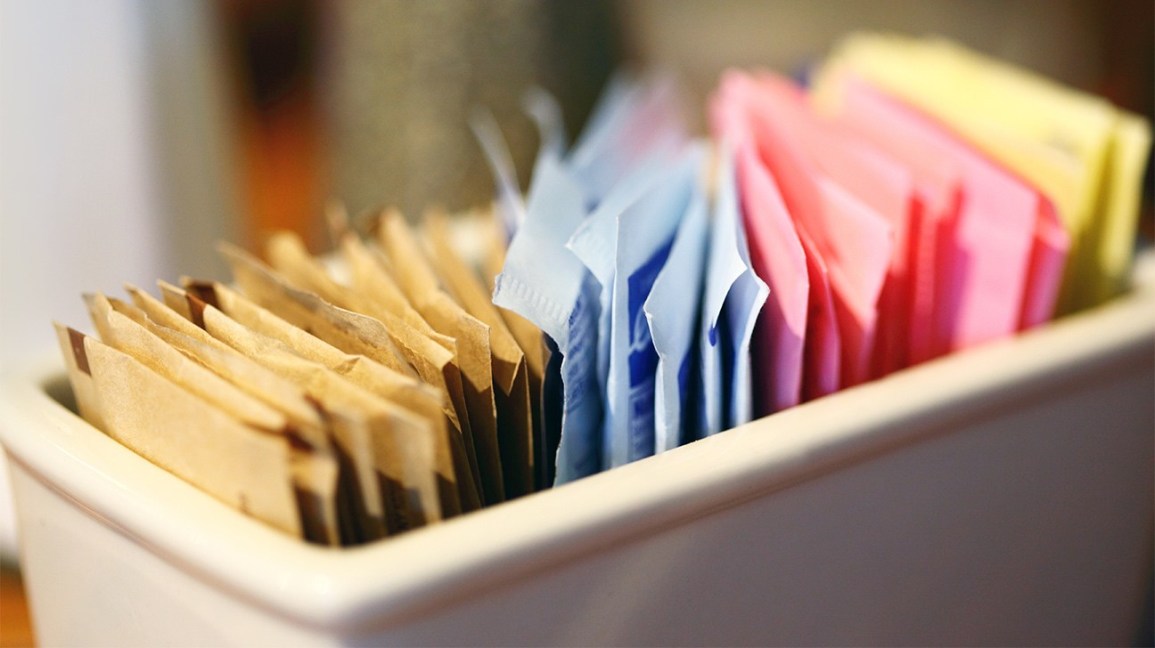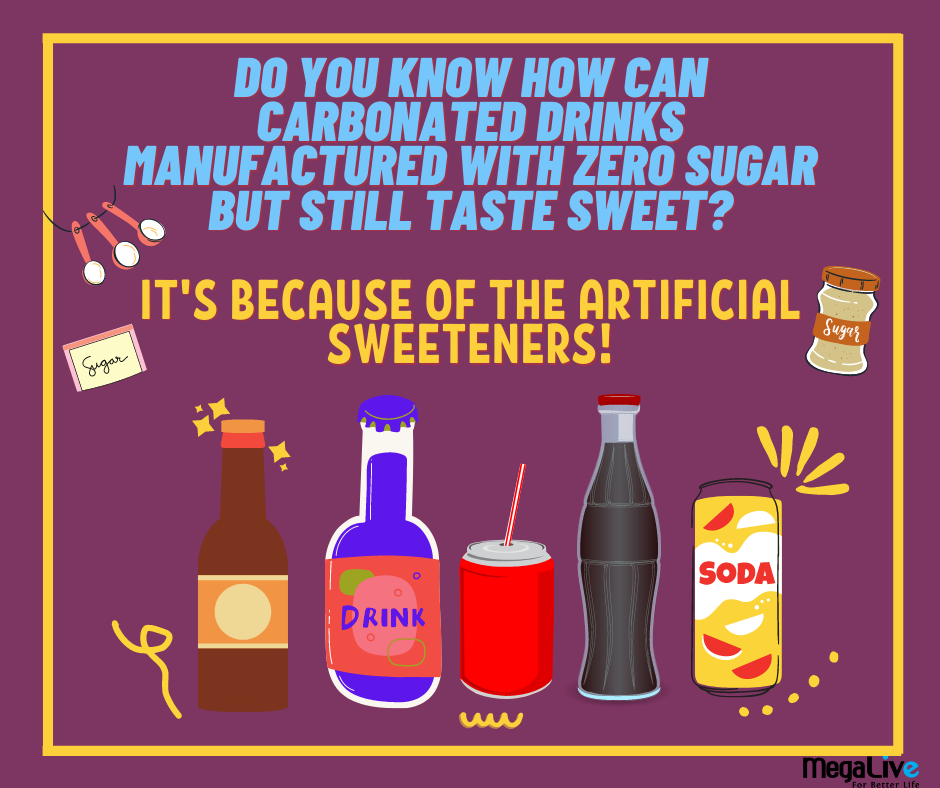Is artificial sweetener good for health?
Artificial sweeteners are low-calorie or calorie-free chemical substances used instead of sugar to sweeten foods and drinks. Sacharin, was the first artificial sweetener discovered in John Hopkin. It was then use widely, to the point that it was used during world war II when there was a sugar shortage, and when the shift in the perspective viewing thin figure as beauty. Sacharine is 300 times sweeter than sucrose but it has bitter after taste, which makes scientist discover cyclamate, aspartame and many more. As of 2018, there are eight Food and Drug Administration (FDA) approved artificial sweeteners which are, acesulfame K (Sunnet), aspartame (Nutrasweet), saccharin (Sweet and Low, Necta sweet), neotame (New tame), sucralose (Splenda), stevia (Truvia), advantame, and Luo Han Guo fruits extract (Nectresse).
With the advancement in the technology of discovering all these non-calorie artificial sweeteners, thousands of products ranging from drinks, desserts, ready to eat food, baby food, frozen food, and toothpaste start to use this non-calorie artificial sweeteners. But,

Is artificial sweetener healthy? (2, 4, 5)
Although it has been approved by FDA that it is safe to consume artificial sweeteners within the Acceptable Daily Intake (ADI), but the healthiness of artificial sweeteners is somewhat questionable though many individuals with diabetic are consuming it as a means to control their blood sugar level.
Several large-scale studies using artificial sweetener come up that the consumption of artificial sweeteners had no effect on energy intake unlike glucose or sucrose, when it does not possess any effect on the energy intake or consumption of food, it trigger a response to keep the overall energy consumption constant.
We can see this clearly in the rat model study, where rodent that is supplemented with saccharin had significantly elevated total energy intake and gain more weight with increase body adiposity (fat) compared to those that conditioned with glucose. It was seen that, rodent that was given saccharin consume more food than those that is not given saccharin.
While in the human studies, the San Antonio Heart Study that examined 3, 682 adult over seven to eight year period of time found out that BMI of those who consumed artificial sweetener is significantly increased as compared to those who do not. Nurses’ Health Study reported similar observation among children.

Why is that so? (2)
The explanation on this is owe to on how our brain function when we consume food. When we consume food, it is not only that our digestive system is activated but as well as our mind. Food reward system shares the same brain circuitry with other pleasurable activities such as sex and drug administration, thus share the same behavioural paradigm such as binging, withdrawal, and craving. Food rewards consist of two branches: sensory and postingestive (after eating). When we eat, our mind activates in order to tell our body that we are already full, or we feel full (satiety) or when we are satisfied with the food (mesolimbic dopamine system). Mesolimbic dopamine system is a system that is activated whenever a pleasant taste causes us to be satisfied with the food that we consumed.
However, when we consume food from artificial sweetener, it is somehow does not activate mind into signalling that we are satisfied with the food, thus those who consume artificial sweetener tend to consume more food, this trick has cause individuals to eat even more, some more thinking that they consume non-calorie artificial sweeteners, thus making them easily gain weight.

In conclusion (1)
Data on artificial sweeteners is still scarce as compared to other kind of things, where even health professionals have different take on whether it is okay for the body. To make thing safe, whatever things that we consume must always be in moderation, balance, and variety. It is very essential for individuals with diabetes to know on how to estimate their calorie intake and identify the food that can instantly spike their blood glucose level and food that will slowly increase the blood glucose level, so that they can manage their blood glucose better.
Different kind of artificial sweeteners have different level of sweetness as compared to sucrose; it also has different side effect in terms of its bitter after taste. Some of it even is not suitable to certain cooking temperature like baking. Some of it is even not suitable to certain medical condition such as phenylketonuria (PKU), a condition when an individual is unable to metabolize amino acid phenylalanine, thus cannot consume food that has phenylalanine such as aspartame.
Also, if you are considering taking artificial sweetener, do consult medical professional so they may calculate the amount needed based on your body weight per day.
References
- National Health Service (NHS). U.K. The Truth About Sweeteners. https://www.nhs.uk/live-well/eat-well/are-sweeteners-safe/ (Accessed on September 9, 2020).
- Qing Yang (2010). Gain weight by “going diet?” Artificial sweeteners and the neurobiology of sugar cravings. Department of Molecular, Cellular and Developmental Biology, Yale University. YALE JOURNAL OF BIOLOGY AND MEDICINE 83 (2010), pp. 101-108.
- S Food and Drugs Administration (FDA) (2018). Additional Information about High-Intensity Sweeteners Permitted for Use in Food in the United States. https://www.fda.gov/food/food-additives-petitions/additional-information-about-high-intensity-sweeteners-permitted-use-food-united-states (Accessed on September 9, 2020).
- Mc Clave, S., Obert, J., Casey, L. (2017). The Association Between Artificial Sweeteners and Obesity. Nutrition and Obesity. Current Gastroenterology Reports volume 19, Article number: 64 (2017).
- Brown, R. J., De Banate, M. A., & Rother, K. I. (2010). Artificial sweeteners: a systematic review of metabolic effects in youth. International Journal of Pediatric Obesity, 5(4), 305-312.




